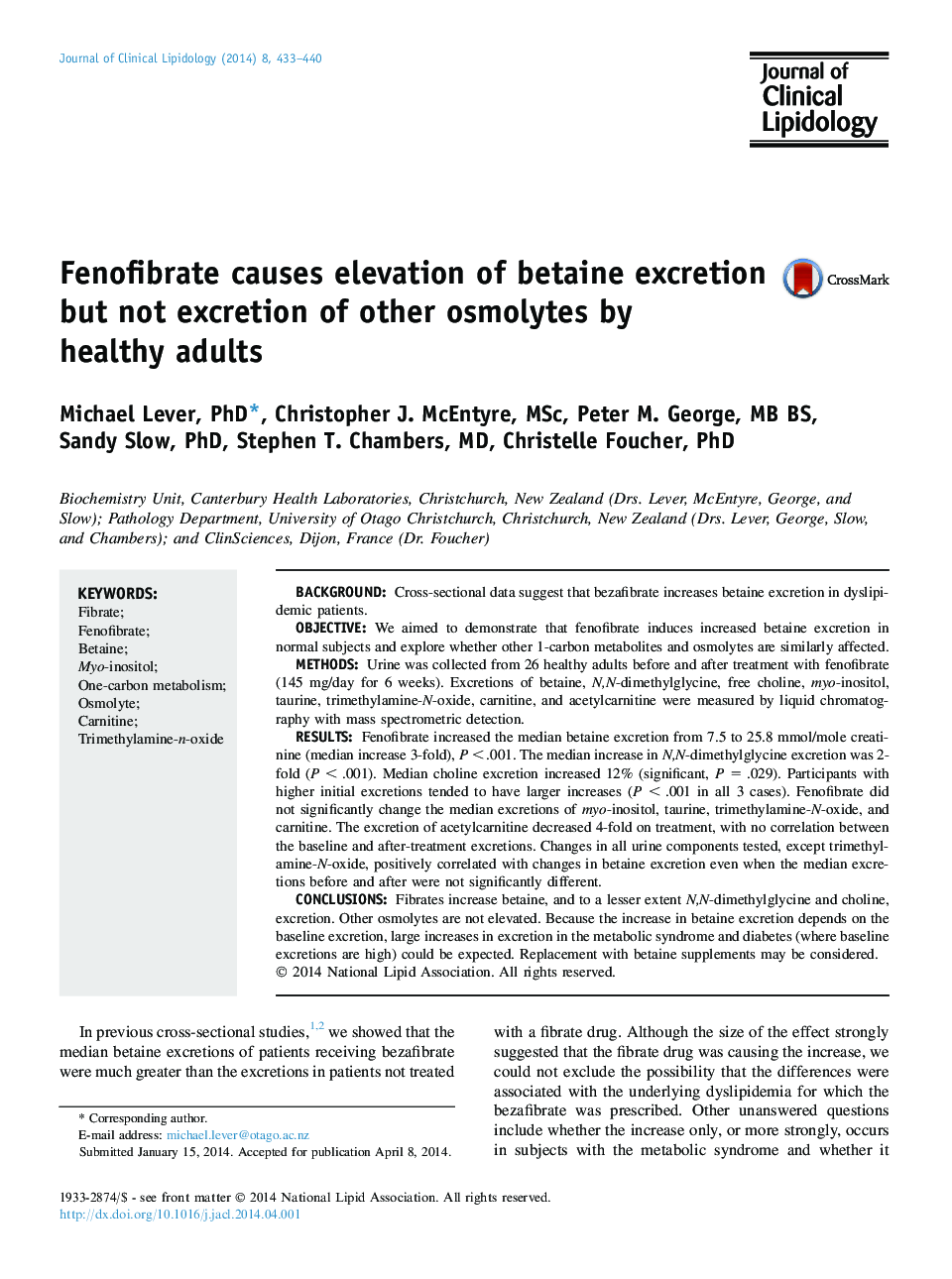| Article ID | Journal | Published Year | Pages | File Type |
|---|---|---|---|---|
| 5986051 | Journal of Clinical Lipidology | 2014 | 8 Pages |
âºFenofibrate raises excretion of betaine but not other osmolytes in normal subjects.âºExcretions of N,N-dimethylglycine and choline increase to a lesser extent.âºIncreases in betaine excretion increase with the baseline betaine excretion.âºThe effect on betaine is a fibrate class effect, which may be severe in diabetes.âºBetaine supplementation and fibrate treatment may be synergistic.
BackgroundCross-sectional data suggest that bezafibrate increases betaine excretion in dyslipidemic patients.ObjectiveWe aimed to demonstrate that fenofibrate induces increased betaine excretion in normal subjects and explore whether other 1-carbon metabolites and osmolytes are similarly affected.MethodsUrine was collected from 26 healthy adults before and after treatment with fenofibrate (145Â mg/day for 6Â weeks). Excretions of betaine, N,N-dimethylglycine, free choline, myo-inositol, taurine, trimethylamine-N-oxide, carnitine, and acetylcarnitine were measured by liquid chromatography with mass spectrometric detection.ResultsFenofibrate increased the median betaine excretion from 7.5 to 25.8Â mmol/mole creatinine (median increase 3-fold), PÂ <Â .001. The median increase in N,N-dimethylglycine excretion was 2-fold (PÂ <Â .001). Median choline excretion increased 12% (significant, PÂ =Â .029). Participants with higher initial excretions tended to have larger increases (PÂ <Â .001 in all 3 cases). Fenofibrate did not significantly change the median excretions of myo-inositol, taurine, trimethylamine-N-oxide, and carnitine. The excretion of acetylcarnitine decreased 4-fold on treatment, with no correlation between the baseline and after-treatment excretions. Changes in all urine components tested, except trimethylamine-N-oxide, positively correlated with changes in betaine excretion even when the median excretions before and after were not significantly different.ConclusionsFibrates increase betaine, and to a lesser extent N,N-dimethylglycine and choline, excretion. Other osmolytes are not elevated. Because the increase in betaine excretion depends on the baseline excretion, large increases in excretion in the metabolic syndrome and diabetes (where baseline excretions are high) could be expected. Replacement with betaine supplements may be considered.
